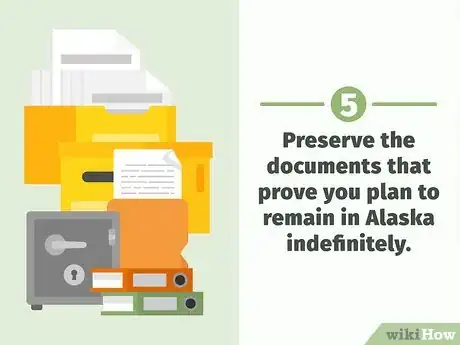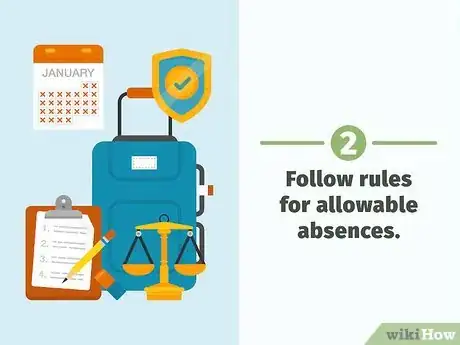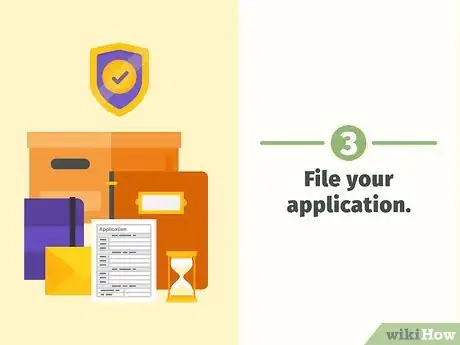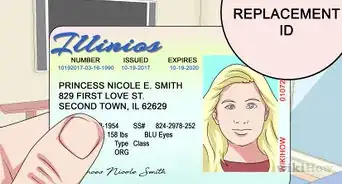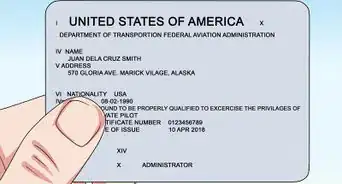This article was co-authored by Clinton M. Sandvick, JD, PhD. Clinton M. Sandvick worked as a civil litigator in California for over 7 years. He received his JD from the University of Wisconsin-Madison in 1998 and his PhD in American History from the University of Oregon in 2013.
wikiHow marks an article as reader-approved once it receives enough positive feedback. In this case, 100% of readers who voted found the article helpful, earning it our reader-approved status.
This article has been viewed 193,197 times.
Alaska residents receive discounted rates on licenses for some of the best fishing and hunting in the United States, and the Alaska government distributes a Permanent Fund Dividend (PFD) to each eligible resident every year. To qualify as a resident, you need to intend to make Alaska your permanent home. Because showing intent is difficult, Alaska will look to see that you have established and maintained “customary ties” with the state. [1]
Things You Should Know
- Move to Alaska and take a qualifying step to permanently live there, like getting a job, buying a home, or registering a car.
- Live in Alaska for a minimum of 1 year before being legally accepted as a legal Alaskan resident.
- Apply to the Permanent Division Fund online or through the mail. Be sure to sign the application and file it by March 31.
Steps
Establishing Residency
-
1Move to Alaska. To become a resident, you need to be physically present in the state, and you must intend to stay in Alaska indefinitely.
-
2Take a second qualifying step. Mere physical presence is not enough to establish residency. You also need to take an additional action that shows you intend to make Alaska your permanent home. This second step can include:
- signing a contract to move household goods to Alaska. (Employer paid moving contracts do not qualify.)
- being employed in Alaska, as proved by employment records.
- owning a principal place of residence in Alaska, proved by a home purchase contract or rent receipts. (Employer provided housing does not qualify.)
- registering to vote in Alaska.
- registering a motor vehicle in Alaska. [2]
Advertisement -
3Take the second step early. If you want to qualify for a PFD, then you must take your second step before January 1 of the year you hope to qualify.
- You may register to vote by contacting the Alaska Division of Elections. If registering from within Alaska, you will need to provide a driver’s license, a birth certificate, or some other form of personal identification, such as a passport. If you are registering outside the state, then you will need some document that shows your residency, such as proof of employment in Alaska.
- To get an identification card, you will need to take the following documents to the DMV: proof of legal name and date of birth (such as a birth certificate); a secondary document that verifies your first (such as an IRS or state tax form); proof of your principal residence, such as a utility bill or rental documents; a Social Security number; and documents related to a name change (if applicable). [3]
- Alaska encourages all residents to get an identification card even if they have a driver’s license. ID cards cost $15.
-
4Claim Alaskan residency if in the military. Service members must formally claim Alaska as their residency with the military, and the paperwork must be processed by December 31 of the year before your qualifying year.
- For example, if you want to qualify as a resident for 2016, your paperwork must go through by December 31, 2015.
- Service members must also take a second qualifying step before July 1 of their qualifying year. The same steps apply to the military as to the general public: register a vehicle, register to vote, obtain a state driver’s license, or purchase or rent an Alaskan home.
- The spouse of a service member must take the second qualifying step before January 1 of the qualifying year.
-
5Preserve the documents that prove you plan to remain in Alaska indefinitely. You may be required to prove residency, especially if you seek to participate in the Permanent Fund Dividend, which distributes oil revenues to Alaskan residents.
- Keep multiple copies of documents in a safe place. A safe deposit box is a great way to preserve records.
- If you lose your driver’s license, replace it immediately.
-
6Sever connections to a prior domicile. To be an Alaskan resident, you cannot maintain customary ties to another state. Accordingly, you should not:
- Register to vote in another state, even as part of registration drives.
- Keep a driver’s license from another state.
- Pay income taxes as a resident in another state.
-
7Use your Alaskan residence as your permanent address. You may maintain a second home in another state, but be sure not to use that address on any official government forms, such as tax returns.
Maintaining Residency
-
1Do not take any steps “inconsistent” with maintaining residency in Alaska indefinitely. Inconsistent steps are those steps establishing customary ties with a state other than Alaska.
- If you register a vehicle in another state or register to vote in another state, you are signaling that you do not consider Alaska to be your permanent home.
-
2Follow rules for allowable absences. All residents may be absent for 180 days for whatever reason.[4] Students and members of the military may be physically out of state for extended periods of time. Alaska allows you to maintain your residence provided you follow rules for allowable absences.
- Report absences. You must report all absences over 90 days. [5] Failure to report is considered fraud.
- Military personnel may be excused for days in excess of 180 if they are serving on active duty or their spouse is.
- Students may qualify for a 120 days in addition to the time claimed for being a student in good standing. The student must be attending school full-time. A narrow exception exists if you are in your final year; you may have one semester below full-time provided you are on track to graduate.
- Students and military personnel must spend at least 72 consecutive hours in Alaska every two years. You must have proof of your presence, such as boarding passes with your name on it or sales receipts showing that you made purchases in Alaska over a 72-hour period.[6]
-
3Seek assistance. If you have questions about maintaining your residency, contact the Dividend Information ofices.
-
4Continue to live in Alaska for at least 1 year.
- You must reside in Alaska for 12 months before you can be considered a legal resident for purposes of the Permanent Fund Dividend.
Applying for the Permanent Division Fund
-
1
-
2Get a hard copy. If you prefer to fill out a printed application, you may get a copy from any of the distribution centers around the state.
-
3File your application. The deadline is March 31. Be sure to gather proof of filing.[8]
- If you file online, print off the "Congratulations!" page. This contains your PFD confirmation number.
- If you mail it, a delivery or proof of mail receipt will suffice.
- If you hand-deliver the application, then be sure to ask for a receipt.
-
4Sign the application. Even if you file electronically, you must still sign the document. There are two ways: either print a signature page off or sign electronically.
- To print a signature page, click on the "Reprint a Signature" tab at the PFD website. The link is on the right.
- Enter your applicant details and hit "Search." Then click "Required Item" and then "Document Center."
- Print off the signature page after selecting it from "Required Items." Mail the signed page to the "Alaska Department of Revenue, Permanent Fund Dividend Division, P.O. Box 110462, Juneau, AK 99811-042." It may also be faxed to 907-465-3470.
- Alternately, you may sign the application electronically. To do so, you must create a myAlaska.gov account.
- A myAlaska account is only available if you are an adult who has received the PFD previously.
- Step-by-step instructions for electronic signatures are available here.
Warnings
- Claiming residency when you are not a resident is considered fraud and will be treated as such under the law.⧼thumbs_response⧽
References
- ↑ https://pfd.alaska.gov/eligibility/establishing-residency
- ↑ https://pfd.alaska.gov/eligibility/establishing-residency
- ↑ http://doa.alaska.gov/dmv/akol/stateid.htm
- ↑ https://pfd.alaska.gov/eligibility/absence-guidelines
- ↑ https://pfd.alaska.gov/eligibility/absence-guidelines
- ↑ https://pfd.alaska.gov/eligibility/absence-guidelines
- ↑ https://pfd.alaska.gov/application/filing-period
- ↑ https://pfd.alaska.gov/application/ProofOfFiling/
About This Article
To become an Alaska resident, start by moving there with the intent to stay indefinitely. In order to further prove your intention to become a resident, you’ll want to do at least one of the following: sign a contract to move household goods to Alaska, be employed there, own a principal place of residence there, or register to vote in Alaska. Additionally, make sure you're no longer registered to vote or drive in the state you lived in prior or pay income tax as a resident of another state. To learn how to apply for the Permanent Division Fund, keep reading!




